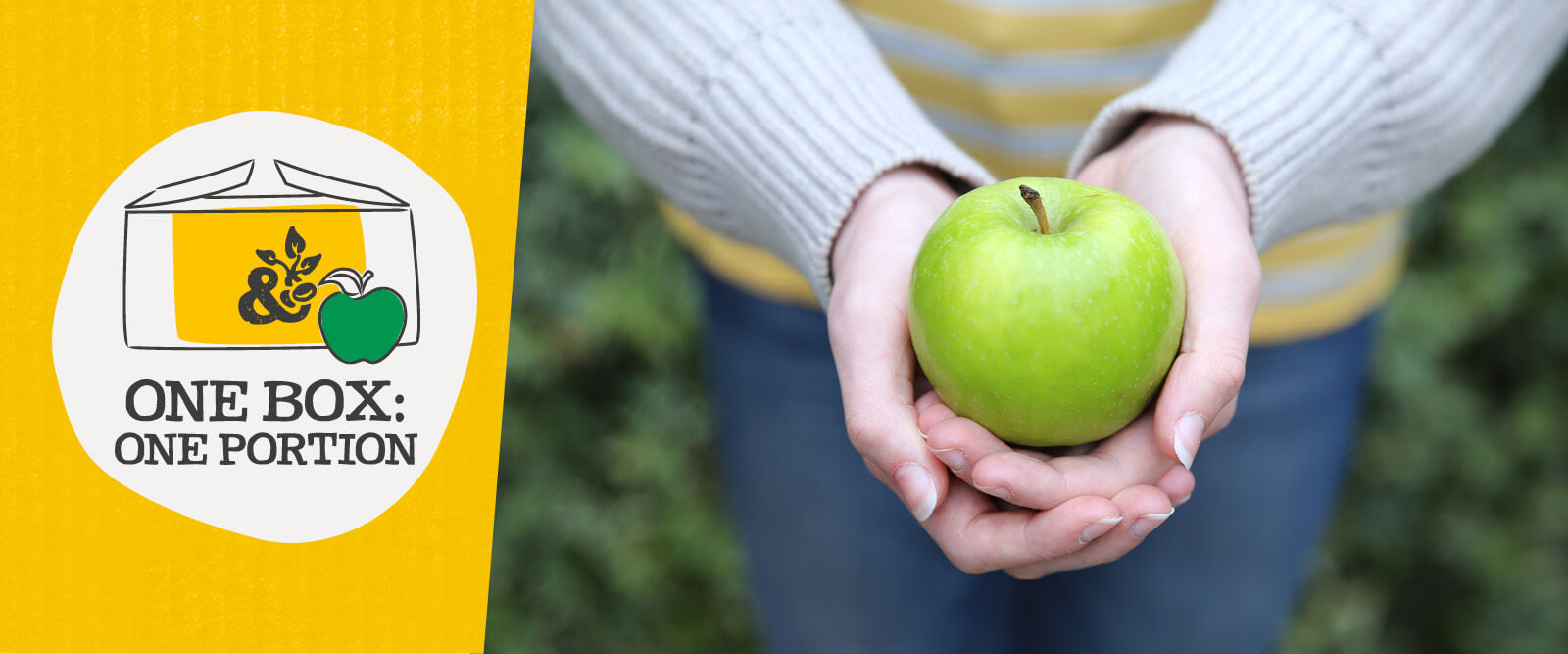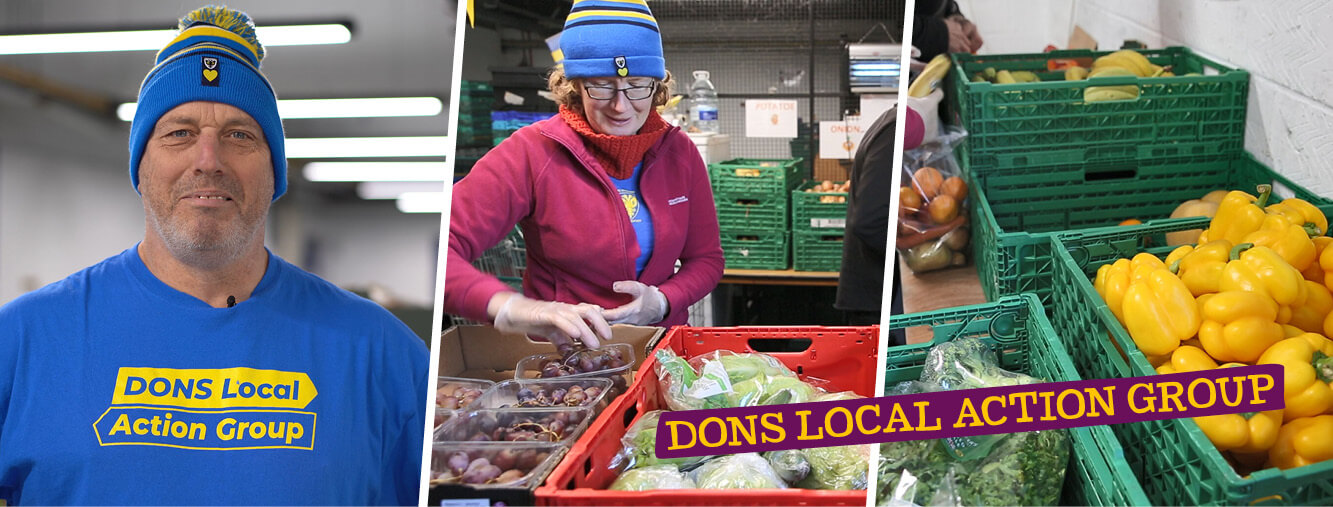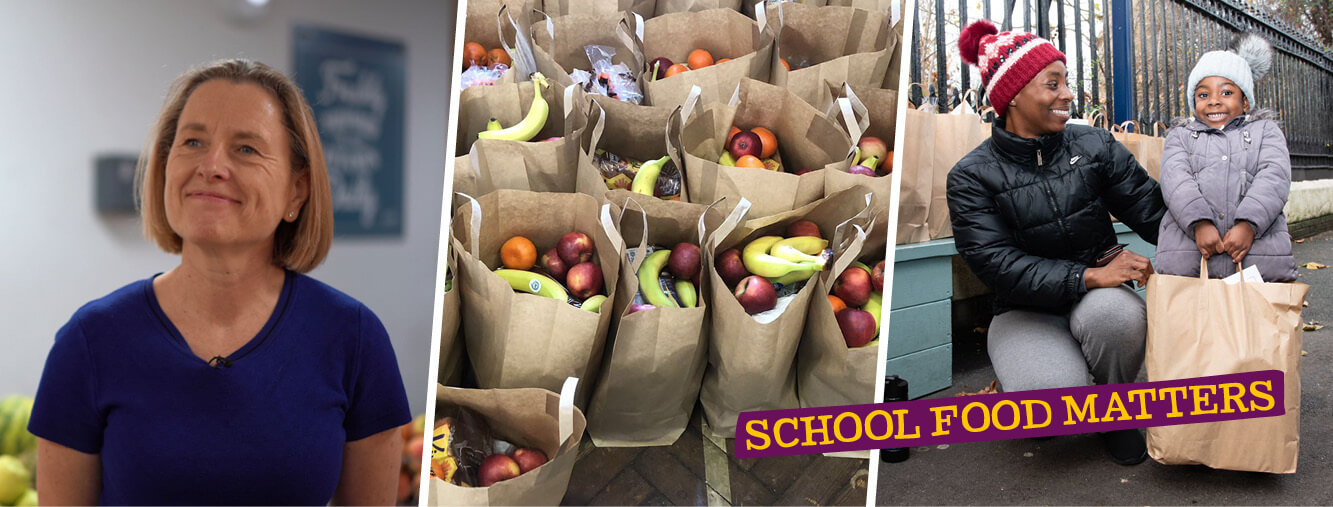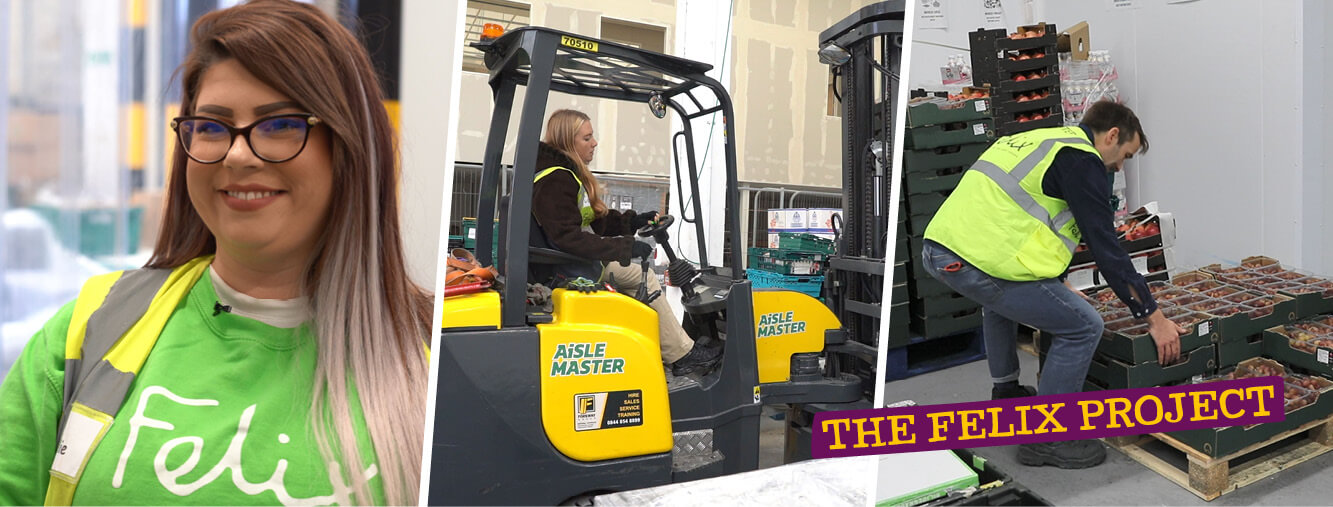Fighting food poverty with One Box: One Portion

Why is our One Box: One Portion initiative so important?
Food poverty is a critical issue in the UK. A Government study published in April 2021 found that household food insecurity has increased during the COVID-19 pandemic, with 4.7 million adults and 2.3 million children experiencing food poverty in the first six months. Significantly, this included 12% of all households with children.
Reliance on food banks has also increased. The same study found that the Trussell Trust supplied more than 2.5 million three-day emergency food parcels in 2021 – an increase of 33% on the previous year. Around 40% of those parcels went to children.
Through our work with some incredible food poverty charities, we’ve seen first-hand that food banks are often in need of fresh produce. So with this initiative, our intention is to help those experiencing food poverty or insecurity to have better access to top-quality, organic fruit and veg.
The need to tackle and reduce diet-related inequality was a key finding from the Dimbleby 2021 National Food Strategy, published in July. The report highlighted that “social inequalities in the UK are reflected in, and exacerbated by, inequalities of diet.”
With these startling findings in mind, we knew we had to do something to make a positive difference in our little corner of the world.
Who will your food donations be supporting?
With every weekly Fruit & Veg Box you enjoy, you’ll be supporting the vital work of three of our amazing food charity partners. Together, we can help those experiencing food insecurity and work to end child food poverty in our community.
DONS LOCAL ACTION GROUP
A stone’s throw away from our Wimbledon site, you’ll find the HQ of Dons Local Action Group.
Dons Local Action Group are a volunteer-led charity, founded in March 2020 in response to the COVID-19 pandemic. They began by collecting and delivering food to vulnerable and self-isolating residents, setting up food donation points at Morrisons in Wimbledon and the Old Rutlishians’ Association in Merton.
“Thanks to the huge response and enthusiasm from the local community, the group grew exponentially, adding more collection points across Kingston, Merton and Wandsworth,” explain our friends at Dons. “As the pandemic worsened, we realised that we had to continue our work beyond the initial emergency response and commit to tackling the ongoing issues with food poverty in our Boroughs.”

“Our volunteers operate seven days a week outside supermarkets, collecting food donations from the general public. This enables us to provide weekly food boxes to individuals and families. Recipients of food parcels are referred to us by Social Services, GPs, housing associations, School Liaison Officers, charities and many other local organisations.
“When incomes drop and family budgets shrink, food choices shift toward cheaper foods. The first items dropped are usually healthier foods such as high-quality proteins, wholegrains, vegetables and fruit. The quality of a person’s or family’s diet is severely affected by their income level. Often, their only option for a full stomach is an unhealthy one. While many may argue that equal access to healthy foods exists, they forget that unhealthy alternatives are more readily available, far cheaper, have a longer shelf life, and are more convenient when your budget is constrained.
“It is vitally important to us, and to the recipients of our weekly food boxes, that we have the ability to provide nutritious, fresh fruit and veg.”
SCHOOL FOOD MATTERS
“School Food Matters exists to teach children about food and to improve access to healthy, sustainable food during their time at school,” explain our friends at School Food Matters.
The charity was founded in 2007 by Stephanie Slater, a parent perplexed by the school food offered to her two small children: frozen food that was unappealing and, quite often, unidentifiable. Their mission was to actively engage parents and head teachers about the quality and delivery of school meals, and to persuade the local authority to come up with a better offering for children experiencing food poverty or insecurity.
During the COVID-19 pandemic, School Food Matters have witnessed the urgent need to tackle food poverty in London. So far, they’ve supported at least 26,000 families, amounting to over 1.1 million breakfasts delivered across six Boroughs, since the start of the pandemic.

“Thanks to Abel & Cole, we were able to supplement our offering with fresh fruit, which was welcomed by families who struggle to afford fresh produce. Our focus during lockdown and indeed, across all our work, is to tackle health inequalities; to make sure that families receive food that will support good health, and encourage their children to eat more fruit and veg.
“This is important as only 12% of 11-18 year olds consume five portions of fruit and veg a day, as recommended, while for adults that figure is 33%, Government figures show. A recent report shows affordability remains a ‘key barrier’ to people buying veg, with the wealthiest 20% eating one portion of veg more a day than the poorest 20%, who are also much more likely to be eating no veg at all.
“The Government provides free fruit and veg to infant school children, but older children, particularly in secondary schools, miss out on this. That’s why we have chosen to support Bacon’s College for our work on One Box: One Portion with Abel & Cole, as this is where your food donation will have the greatest impact. We will have the opportunity to supplement the school’s breakfast offering, provide a healthy option at breakfast and send any surplus home to families, in a school community where 61% of students are entitled to free school meals.”
THE FELIX PROJECT
The Felix Project are committed to fighting food poverty and waste in London.
Their work began back in 2016, in memory of Felix, who passed away from meningitis aged 14. “What started with one woman, one van and a handful of volunteers in West London has grown into London’s leading food redistribution charity, with warehouses in four locations across the city, thousands of volunteers and a professional kitchen cooking meals from surplus,” they tell us.
The Felix Project collect fresh, nutritious food that cannot be sold, and deliver this surplus to charities and schools, so that they can provide healthy meals to those in need. Their food helps 260,000 Londoners every week, including thousands of families and children.

“There has never been a more urgent need for food donation in London. Over the past two years, we have grown four-fold from 6 million meals delivered in 2019 to 34 million meals delivered in 2020, to keep up with rapidly growing demand. We are seeing more parents skipping meals so that their children can eat, more university graduates queuing at food banks, and more people homeless and relying on free food.
“Fresh fruit and vegetables are really important for a good, healthy diet. Unfortunately, they are often much more expensive than other types of food – meaning they’re even harder for people to afford. Delivering fresh, good quality food is what The Felix Project is all about. We want to fight food poverty and help people to eat well. No one should have to miss a meal.”
Published December 2021


